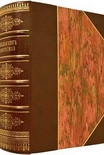Myths and Legends of China by E. Werner (free ebook reader for iphone TXT) 📗

- Author: E. Werner
Book online «Myths and Legends of China by E. Werner (free ebook reader for iphone TXT) 📗». Author E. Werner
To set forth in detail the various phases through which Chinese myth has passed would involve a technical description foreign to the purpose of a popular work. It will sufficiently serve our present purpose to outline its most prominent features.
In the earliest times there was an ‘age of magic’ followed by an ‘heroic age,’ but myths were very rare before 800 B.C., and what is known as primitive mythology is said to have been invented or imitated from foreign sources after 820 B.C. In the eighth century B.C. myths of an astrological character began to attract Page 72attention. In the age of Lao Tzŭ (604 B.C.), the reputed founder of the Taoist religion, fresh legends appear, though Lao Tzŭ himself, absorbed in the abstract, records none. Neither did Confucius (551–479 B.C.) nor Mencius, who lived two hundred years later, add any legends to history. But in the Period of the Warring States (500–100 B.C.) fresh stimuli and great emotion prompted to mythological creation.
Tso-ch’iu Ming and Lieh Tzŭ
Tso-ch’iu Ming, commentator on Confucius’s Annals, frequently introduced legend into his history. Lieh Tzŭ (fifth and fourth centuries B.C.), a metaphysician, is one of the earliest authors who deal in myths. He is the first to mention the story of Hsi Wang Mu, the Western Queen, and from his day onward the fabulists have vied with one another in fantastic descriptions of the wonders of her fairyland. He was the first to mention the islands of the immortals in the ocean, the kingdoms of the dwarfs and giants, the fruit of immortality, the repairing of the heavens by Nü Kua Shih with five-coloured stones, and the great tortoise which supports the universe.
The T’ang and Sung Epochs
Religious romance began at this time. The T’ang epoch (A.B. 618–907) was one of the resurrection of the arts of peace after a long period of dissension. A purer and more enduring form of intellect was gradually overcoming the grosser but less solid superstition. Nevertheless the intellectual movement which now manifested itself was not strong enough to prevail against the powers of mythological darkness. It was reserved Page 73for the scholars of the Sung Period (A.D. 960–1280) to carry through to victory a strong and sustained offensive against the spiritualistic obsessions which had weighed upon the Chinese mind more or less persistently from the Han Period (206 B.C.-A.D. 221) onward. The dogma of materialism was specially cultivated at this time. The struggle of sober reason against superstition or imaginative invention was largely a struggle of Confucianism against Taoism. Though many centuries had elapsed since the great Master walked the earth, the anti-myth movement of the T’ang and Sung Periods was in reality the long arm and heavy fist of Confucius emphasizing a truer rationalism than that of his opponents and denouncing the danger of leaving the firm earth to soar into the unknown hazy regions of fantasy. It was Sung scholarship that gave the death-blow to Chinese mythology.
Lao Tzu
It is unnecessary to labour the point further, because after the Sung epoch we do not meet with any period of new mythological creation, and its absence can be ascribed to no other cause than its defeat at the hands of the Sung philosophers. After their time the tender plant was always in danger of being stunted or killed by the withering blast of philosophical criticism. Anything in the nature of myth ascribable to post-Sung times can at best be regarded only as a late blossom born when summer days are past.
Myth and Doubt
It will bear repetition to say that unless the myth-builder firmly believes in his myth, be he the layer of the foundation-stone or one of the raisers of the superstructure, he will hardly make it a living thing. Once he believes in reincarnation and the suspension of natural Page 74laws, the boundless vistas of space and the limitless æons of time are opened to him. He can perform miracles which astound the world. But if he allow his mind to inquire, for instance, why it should have been necessary for Elijah to part the waters of the Jordan with his garment in order that he and Elisha might pass over dryshod, or for Bodhidharma to stand on a reed to cross the great Yangtzŭ River, or for innumerable Immortals to sit on ‘favourable clouds’ to make their journeys through space, he spoils myth—his child is stillborn or does not survive to maturity. Though the growth of philosophy and decay of superstition may be good for a nation, the process is certainly conducive to the destruction of its myth and much of its poetry. The true mythologist takes myth for myth, enters into its spirit, and enjoys it.
We may thus expect to find in the realm of Chinese mythology a large number of little hills rather than a few great mountains, but the little hills are very good ones after their kind; and the object of this work is to present Chinese myth as it is, not as it might have been had the universe been differently constituted. Nevertheless, if, as we may rightly do, we judge of myth by the sentiments pervading it and the ideals upheld and taught by it, we shall find that Chinese myth must be ranked among the greatest.
Myth and Legend
The general principles considered above, while they explain the paucity of myth in China, explain also the





Comments (0)